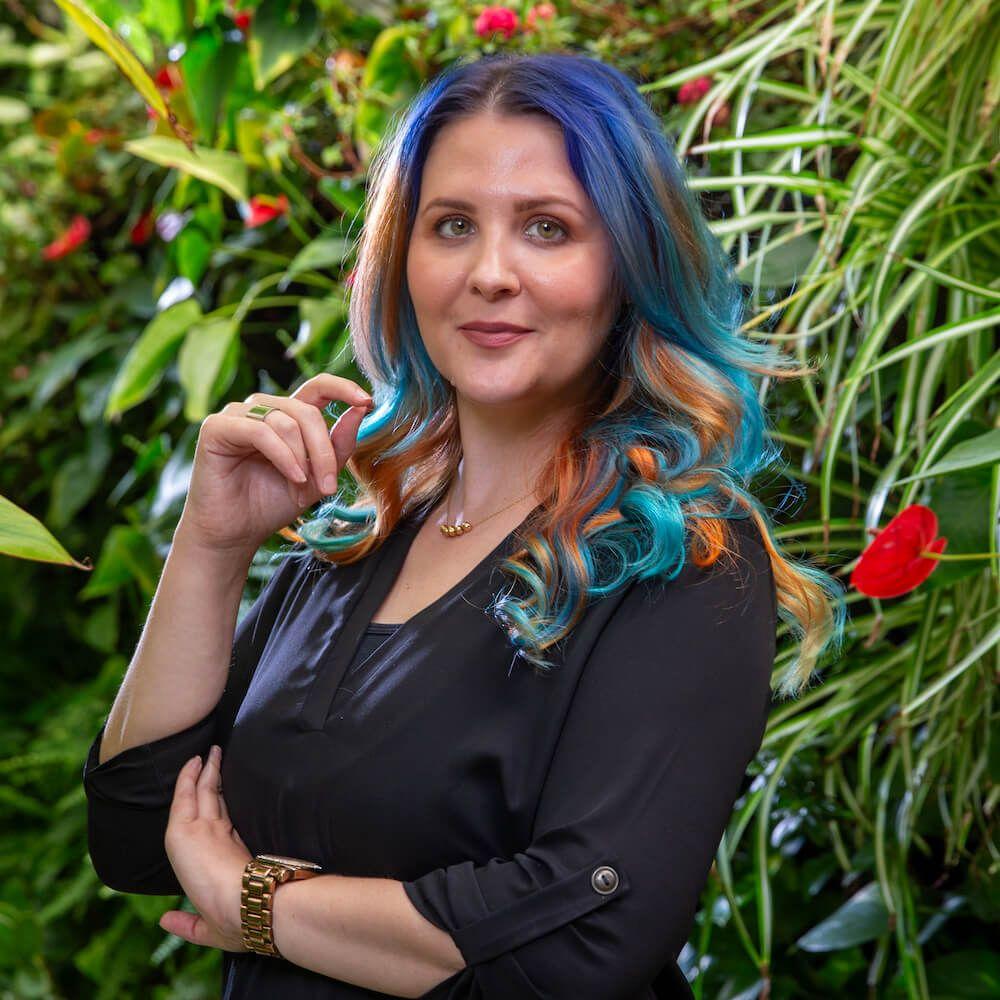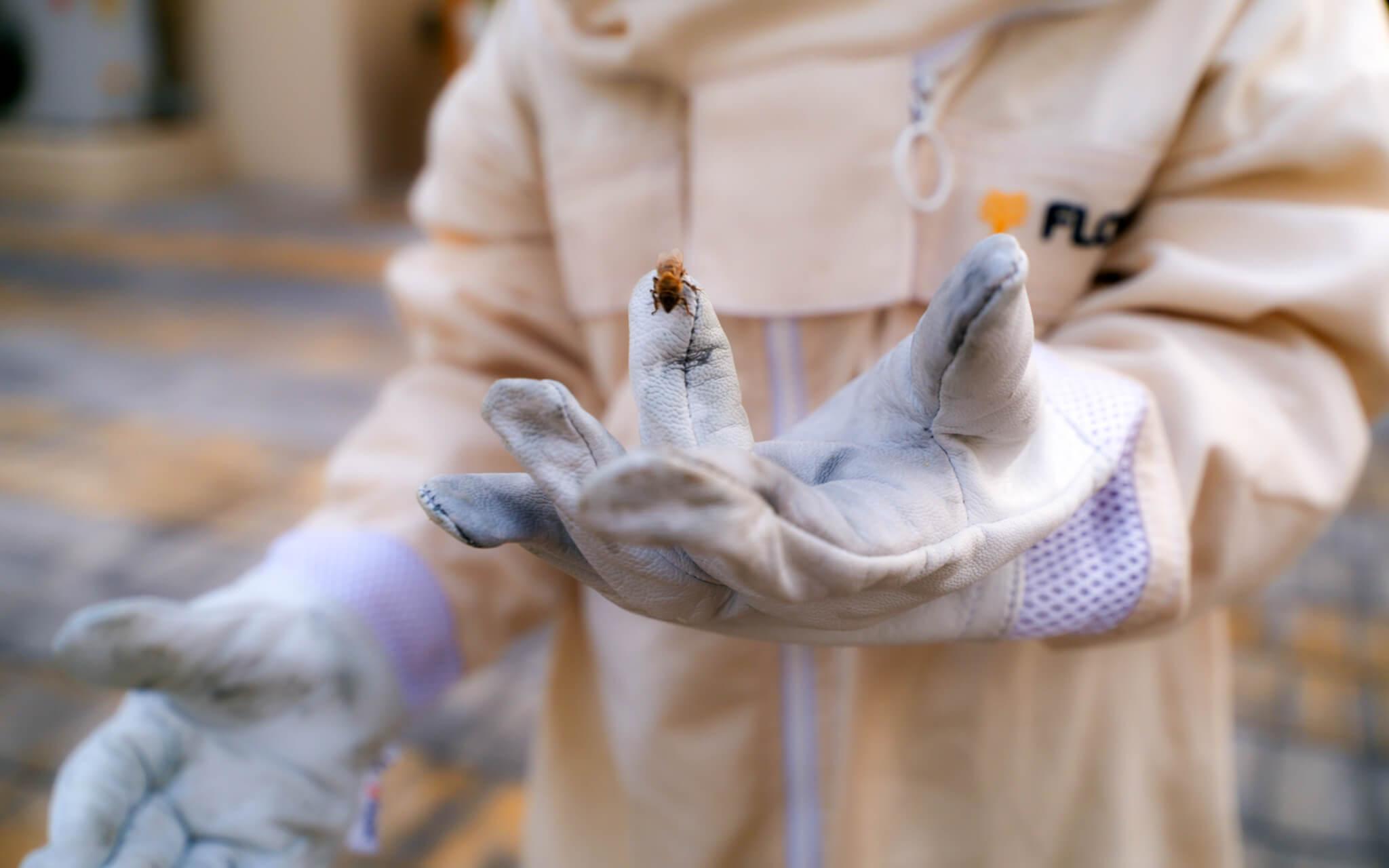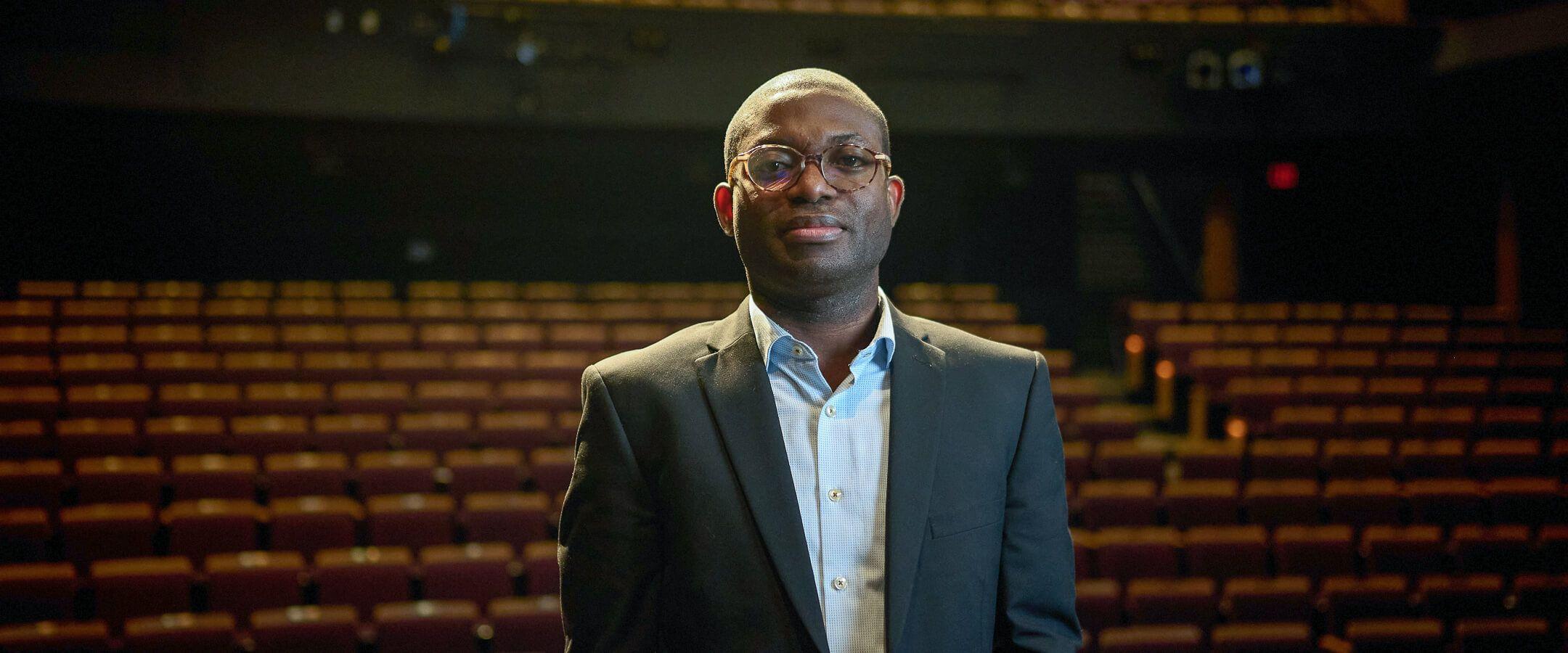The Sounds of the Sea
A powerful experience with a pod of dolphins challenged Dave Erasmus’ perception of underwater life. Now, Dave is the founder of Aqoustics, a revolutionary AI platform mapping the ocean through the power of sound.
Dave Erasmus believes everyone should spend a night or two alone in nature. “If you strip everything else away, the technology and other people and the busyness, then you're left to face nature – almost like a mirror.”
Over the past few decades, Dave, a social entrepreneur, has often retreated to off-grid living, finding an unmediated connection to the Earth through his time alone in the rainforests of Costa Rica or the forests of England. “The closer you get to that connection, the more it becomes a part of your identity,” he says, describing the years he spent exploring Earth’s wild spaces. “I didn't learn many skills, but did learn a bit about how seasons work and how nature works.”
In 2021, Dave was looking for a way to reconnect to the city. He’d returned from another year off-grid and needed to relearn how to be around people: COP26 in Glasgow looked like an authentic way to do just that.
However, instead of boarding a train to Scotland, Dave joined a documentary crew that planned to sail the distance, a journey that would completely change his perspective on the ocean. On the final day, as they sailed through an estuary that would take them to Glasgow, a pod of dolphins swam near the boat. Professor Steve Simpson, a fellow traveller and underwater acoustic expert, stuck a hydrophone in the water and set up a live connection to the ‘underwater conversation.’
“It was quite profound for me,” Dave says. “With our primary sense, we could see the dolphins breaching into our world, but with my ears under the water, through the hydrophone, I could hear them talking to each other, delving into their world through their primary sense.
“It gave me a more intimate connection with the ocean than I had received on the rest of the trip.”
Upon their arrival at COP26, the documentary crew, Professor Simpson’s team, and Dave recounted stories of their journey. “We’d done a big transect over a set of recordings in a straight line up the Irish Sea, and they ended up getting printed in the Guardian. And I thought this is mad because we're just amateurs – we're using $100 recording equipment.”
Earth’s oceans are the planet’s most devastated ecological terrain: over 85% of the ocean has been damaged by human interference. Increasing temperatures, rising sea levels, shrinking marine species, noise pollution, plastic pollution, and oil spills: the list of environmental crimes against our most necessary resource feels unending.
The ocean produces half of the world’s oxygen, Dave reminds me. “The warming that we want to avoid on land has already occurred in the ocean; it’s is one step ahead in so many ways, and yet we're not listening to it.”
Dave’s answer to humanity’s disregard? Making a lot of noise.
In 2022, Dave Erasmus founded Aqoustics, an AI and machine-learning platform designed to analyse audio recordings of the ocean. “What we do is similar to what Google Maps has done for the land. We’re a mapping system for under the water, except instead of using satellites, we're using microphones,” he explains.
Analysing the ocean is a tricky proposition. Is that a boat? Is that a clownfish? Is that a healthy coral reef or a piece of plastic slamming into a rock? Breaking down the literal millions of noises produced in the oceans is both time-consuming and expensive. Aqoustics’ technology, however, eradicates all of those issues. Their fourfold mission intends to incentivise the making of ocean recordings, encourage artists to use the sounds of the ocean in music and art, reduce the costs of analysis, and, most importantly, help with the enforcement of marine protection and conservation.
And the ocean is louder than we think.
“Sound travels much better through water than through air. Things like a snapping shrimp sound a little like sizzling bacon, and you can actually hear that for up to 8 miles away from where it's happening. And the critters are only about an inch big!”
Our moral regard for people and places and animals depends on our understanding and intimacy with them; It depends on our ability to encounter them. The ocean can be quite hard to encounter in an intimate way.
Here’s where you come in, dear reader. Aqoustics is essentially crowd-sourcing its audio recordings, and it needs more of them. There are one hundred thirty-nine million square miles of salty blue water, and less than five per cent of it has been explored.
“So if there have been no recordings of your particular bit of ocean that you care about, then any kind of recording, using any kind of device, will be better than nothing.”
Dave’s enthusiasm is infectious; he wants everyone involved. “It's quite accessible because the ocean is not like space travel where it's a huge barrier to entry.” No need for a spaceship, fancy recording equipment, or even a boat. According to Dave, anyone can take a hydrophone or GoPro with underwater casing and dunk it in the water 10 meters offshore. Use a surfboard, paddleboard, kayak, or boat (just make sure you turn off the engine) and take a 20-minute recording.
“This can be novel information – new sounds telling us things we didn't know about before.”
And for those who aren’t inclined towards marine activity, songwriters, musicians, and artists are also invited to participate. Aqoustics provides free recordings to any artist; “We’re becoming the agent for the ocean,” Dave jokes.
Getting serious, he muses on humanity’s relationship with the planet; “Our moral regard for people and places and animals depends on our understanding and intimacy with them; It depends on our ability to encounter them. The ocean can be quite hard to encounter in an intimate way.”
Not if we’re ready to listen, though.
Most Popular
The Climate Tribe delivers stories about Biodiversity and Conservation, Circular Economy, Food and Water , and how they intersect with climate.
Subscribe
Get the latest stories inspiring climate action around the globe straight to your inbox.






